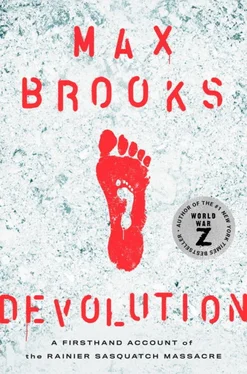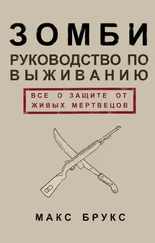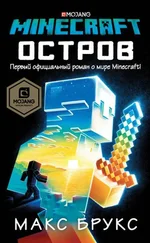“Maybe,” I said with a little disappointment. If they were all just wild weeds…
“Compost?” That was Dan. This was turning into a real party. “The compost we mixed in, the older stuff at the bottom of the bins that turned into soil… could there still be old seeds from…”
“Cucumber slices,” mused Mostar, who squatted next to Pal. Together they were examining a little wild sprout with round green leaves. “And tomatoes?” She pointed to a three-inch thread with two tiny narrow leaves. “This one, I think. How many times do we cut off the bruised parts?”
“I do that all the time!” said Carmen, with more energy and excitement than I’d ever seen. “The extra slices of something, or cutting out pits. And salsa!” This was directed down to Pal. “When we have taco night! All the leftover salsa we make! Right in the bin!”
Our own tomatoes! Even now I can’t stop thinking how good they might taste.
Mostar looked at Pal, who was gently brushing her fingertips across the wobbling tomato stalk. “You know, we still have a lot of older soil-type compost. That has to have more seeds.”
“And rice.” I pointed to the little square foot where I’d sprinkled Bobbi’s brown rice. It was now a solid patch of grass.
“Rice!” Mostar beamed at me. I explained where I’d gotten it and how much more I thought Bobbi had left. Mostar’s lips rounded into a tight O. “We can live on that, rice and beans.” She looked at Carmen. “Do you have any more of those beanbags lying around?”
“We might.” Carmen looked at Pal. “And maybe some extra loose beans we didn’t use. Maybe in the arts and crafts chest?”
Pal nodded enthusiastically.
“Then that would be worth it…” Mostar nodded back. “Worth the calories to build more gardens.”
“More gardens!” Dan almost hit the ceiling. “Totally! Another garage! Maybe two, drip lines, compost”—he glanced at Palomino—“more worms and shit!”
“And shit?” Mostar asked with cocked eyebrow. Dan laughed, his cheeks reddened.
“Yes, really—the biodigester tanks!” And to me, with outstretched palms, “C’mon, I won’t get cut, or sick. I promise!”
Before I could answer, Carmen asked me, “Can we do it?”
I wasn’t sure if she was asking for my permission or expertise. Not that I had either to give. But Dan, Carmen, Palomino, the way they were all looking at me. And Mostar, hanging back, crossed arms. Judging my call?
My mind had already been racing through calculations, judging if the math added up. One cup of brown rice was around two hundred calories. One cup of beans, depending on type, might be the same or more. And fattening too! Most beans had fat in them, about a gram per cup. But how many cups of beans and rice could we hope for?
“We can,” I started to say, but held out my hands quickly, “but after… after we finish the perimeter. First things first, right? Safety, then food. Soon as we get the stakes up, soon as we know they work, we’ll focus on more gardens.”
“Yeah!” Dan pumped his fist as Carmen hugged her daughter.
Behind them, Mostar smiled and nodded.
I felt ten feet tall.
Then she jerked her head to the door and tapped her wrist like an old-style wristwatch.
Reinhardt! My shift!
I ran over to Reinhardt’s house and saw through the window that Effie was reading in the chair next to his couch. She saw me, smiled, and got up to join me in the foyer. I could see Reinhardt was sleeping and she said that he’d been out for most of the morning.
I tried to apologize for being late and described what had happened in the garden. She brightened, but not for the reason you’d think. “Thank you,” she said, “thank you for all you’re doing with Palomino. She needs the purpose now, routine.” She looked across the circle to her house, where her wife and daughter were waving from the window. “And now”—her eyes scanned the ridge—“she needs to focus on something positive. We all do.” More waves from her family, and a final “thank you,” before heading home.
So many thoughts were racing through my head. How many gardens can we build? And what about this one? What now? How much warmth do those little plants need? Dan had been right about cleaning off the roof. We’d need every kilowatt to keep the garage at summer temperatures. And what about summer light? Happy lamps? Everyone has one. Enough? At least the walls are white. Reflective. Aluminum foil? That hydroponics store in Venice. A plant in a reflective box? And fertilizer. Can we really use our own poo? Safe for Dan? Worth it? Smelling up the house?
So many questions, sitting here writing all this down. Foggy brain. Should nap. Reinhardt’s still out. But his library. So many books. Gotta be something useful.
JOURNAL ENTRY #14 [CONT.]
Nope. There wasn’t. Not one practical text, and believe me, I looked! Lots of philosophers though. Descartes, Voltaire, Sartre, and shelves of historians like Gibbon, Keegan, and Tacitus. Beautiful novels too, leather-bound first editions with gold printed names like Proust, Zola, and Molière.
And, of course, there’re his books. Halfway to Marx, Walking with Xu Xing, and the famous Rousseau’s Children, in at least a dozen languages: French, Italian, Greek, Chinese. (Or Japanese, I can’t tell. Can’t be Korean because I didn’t see those little circles.) I noticed a lot of Rousseau’s works were intermixed with various volumes of his book, as if they were buddies who got published at the same time.
At one point I thought I’d hit pay dirt when, going through the larger coffee table books, I came across the title Vanishing Cultures of Southern Africa. I thought I might, at least, get some helpful tips from the pictures. I didn’t. It turned out just to be “white man’s porn”; a lot of voluptuous, topless, or totally naked women dancing and jiggling in various indigenous ceremonies. Okay, so maybe these are culturally accurate photos, and maybe I’m projecting too much from memories of my “Colonialism and Male Sexuality” class at Penn, but Reinhardt’s the exact age to have collected National Geographic the way later generations “read” Playboy for the “articles.” And besides, the picture on the spine above the title should have been a giveaway. It showed a beaded G-string between a woman’s legs.
There was one section though, which I almost missed. It was of a young woman during a coming-of-age ceremony carrying what looked like a hybrid sword/spear. I say “hybrid” because the shaft was shorter than I’d ever seen (barely three feet), while the blade was longer (about a foot and a half). The caption underneath described the weapon as an “Iklwa,” which made me skip to the index for a closer look.
It’s a Zulu weapon, invented by a guy named Shaka, which “revolutionized Bantu warfare.” Unlike earlier throwing spears, which could be knocked away by the other side’s shield, the Iklwa was meant for “close combat.” The wielder would get right up into the face of his enemy, knock the shield away with his own, then stab the short spear’s long blade under the man’s armpit. That’s where the name comes from. The sucking sound of pulling it out of the dead man’s heart and lungs. “Iklwa.”
Gross, yes, and horrifying to think of whole armies fighting this way. But I couldn’t help being fascinated by the book’s comparison to Roman legionnaires who fought in a similar way. Different places, different ages, completely different cultures, and yet they came up with similar weapons and tactics. Is there something about how we’re wired, something universally human? That was my last fuzzy thought before I finally nodded off.
Читать дальше





![Traudl Junge - Hitler's Last Secretary - A Firsthand Account of Life with Hitler [aka Until the Final Hour]](/books/416681/traudl-junge-hitler-s-last-secretary-a-firsthand-thumb.webp)






